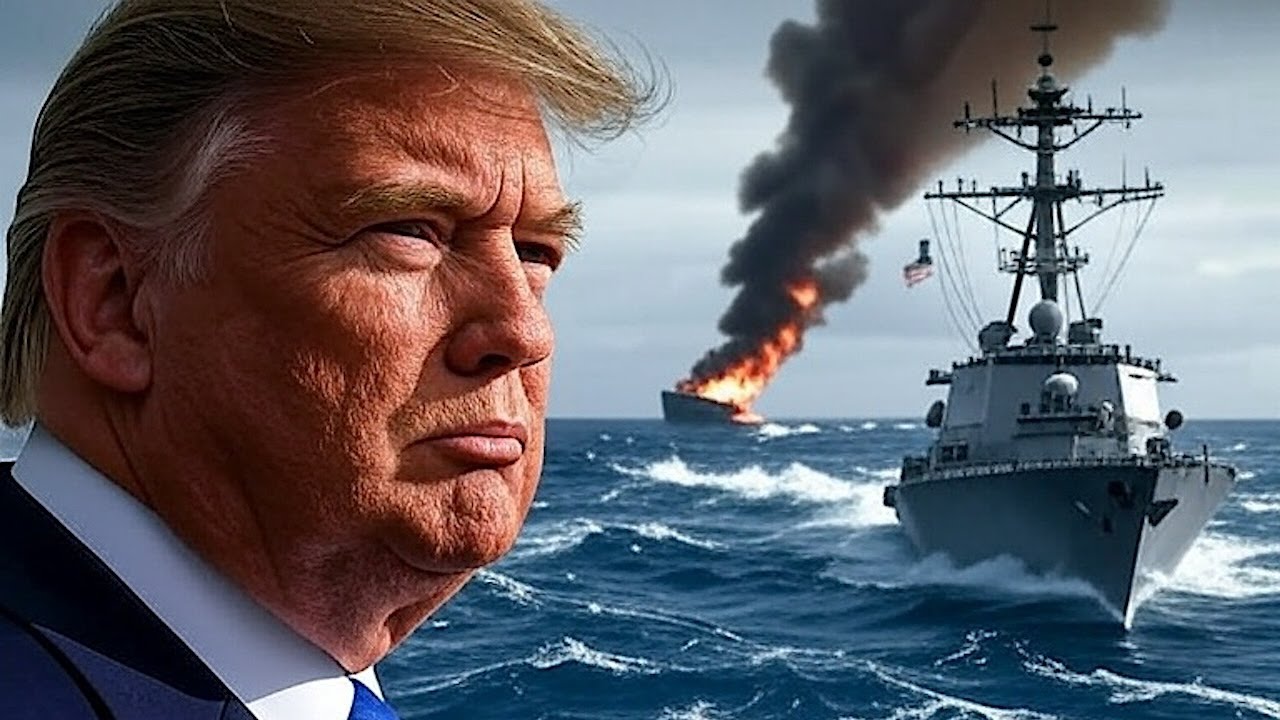
NGOCSTIP – Tren de Aragua became the center of international attention after former President Donald Trump claimed that the US military struck a speedboat operated by the Venezuelan gang in the Caribbean Sea. Trump claimed the vessel carried illegal narcotics bound for the United States and said US forces attacked it in international waters. He stated that the strike killed eleven people and served as a direct warning to other criminal networks attempting similar missions. Trump released a black-and-white video showing a speedboat bursting into flames to support his statement. The video spread rapidly online and triggered widespread discussion, though many questioned its authenticity. The operation ignited global debate about its legality, the participants, and the potential shift in US military tactics in the region. Washington framed this move as part of a broader campaign to fight international drug trafficking.
As Trump insisted the vessel belonged to Tren de Aragua, no independent confirmation has yet been provided. The group, which originated inside a Venezuelan prison, has grown into a powerful network accused of smuggling drugs, arms and people across Latin America. Trump and his allies allege that Tren de Aragua operates under the control of Venezuelan President Nicolás Maduro. However, this claim has been challenged by declassified intelligence assessments, suggesting a lack of concrete links between the group and the state.
Maduro himself avoided direct comment on the attack but accused the US of targeting Venezuela’s natural resources. He asserted that his nation will remain peaceful and sovereign. The Venezuelan government mobilized troops along its coast and borders and dismissed the video as potentially created with artificial intelligence. Communications Minister Freddy Ñáñez suggested the footage was cartoonish and lacked realism. The situation has intensified geopolitical tensions as Venezuela warns of further provocation.
US Senator Marco Rubio, a longtime critic of Maduro, supported Trump’s announcement regarding the attack in the Caribbean. He referred detailed questions about the operation to the Pentagon for further clarification. Rubio suggested the narcotics were probably destined for nearby Caribbean countries such as Trinidad. When asked about US military action inside Venezuela, Rubio gave a vague and non-committal response.
The US Navy recently deployed submarines and destroyers to the region to target narco-cartel operations. This move followed intelligence reports of increasing drug trafficking across the Caribbean Sea. Analysts interpret the buildup as a form of aggressive diplomacy by the United States. It signals Washington’s readiness to expand involvement in Latin American security matters. Rubio’s comments reflect a wider US policy of targeting drug cartels wherever they are found. The presence of US military forces near Venezuela raised concerns in neighboring Latin American nations. Some regional governments fear a return to Cold War-style interventions masked as anti-drug missions.
“Read more: Breaking: Trump Announcement Today Stuns Washington as Congress Reconvenes!”
The Venezuelan government, under Maduro’s leadership, accuses the US of creating a false drug trafficking narrative to justify aggression and push for regime change. Maduro cites UN data, which shows that only a small share of Colombia’s cocaine moves through Venezuela. Colombia, Ecuador, and Peru all report higher narcotics seizures than Venezuela. Still, Washington insists on portraying Venezuela as the main stage of the drug crisis. The US maintains that Venezuela acts as a central hub for international smuggling. However, many countries reject this view. Officials in Bolivia and Colombia have expressed doubt about Washington’s framing. Meanwhile, Ecuador faces increasing cartel violence and features more often in global drug reports. Critics argue that the US uses drug enforcement as a tool to pursue wider geopolitical goals in Latin America. This approach has drawn international scrutiny and sparked debate over the real motives behind Washington’s regional actions.
Reaction to the strike has been divided. In the United States, Trump’s supporters hailed the operation as decisive action against criminal elements that threaten national security. Critics, however, questioned the lack of transparency and the potential risks of unilateral military actions in international waters. Latin American leaders were equally split. Some, especially those facing similar criminal threats, expressed cautious support. Others criticized the move as destabilizing.
Human rights groups have raised concerns about the legality of the operation, given the unclear identity of those on board and the limited evidence linking them directly to Tren de Aragua. The timing of the strike, amid ongoing diplomatic tensions and regional political shifts, has also led to speculation about its real intent. Without independent verification, questions remain about who was killed and whether the military response was proportionate. The situation continues to evolve as governments assess the political and security implications of this unexpected clash in the Caribbean.